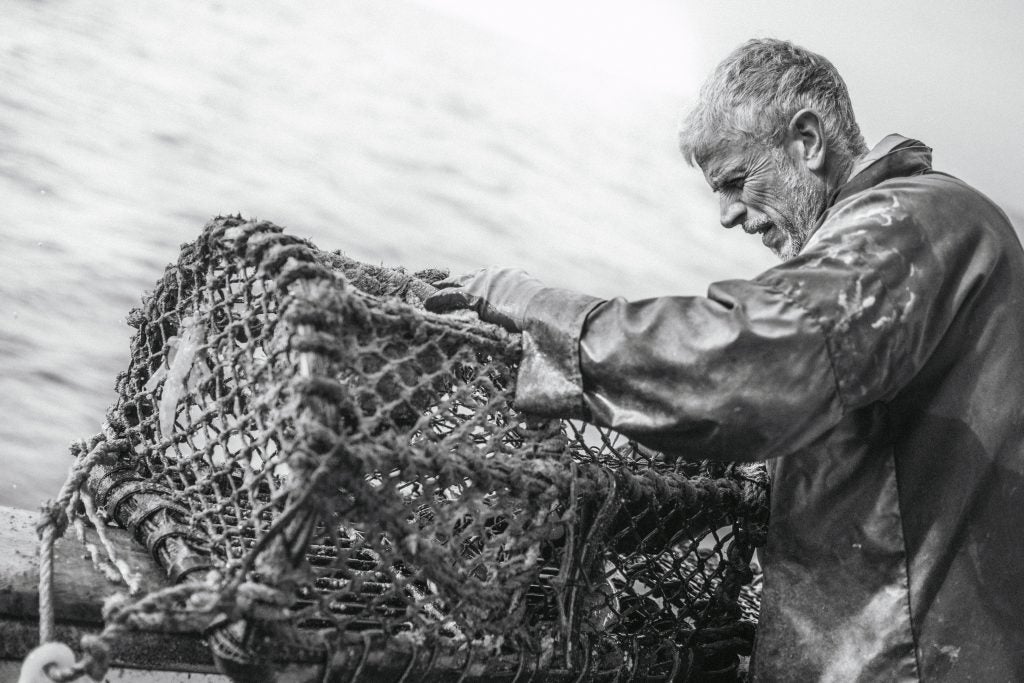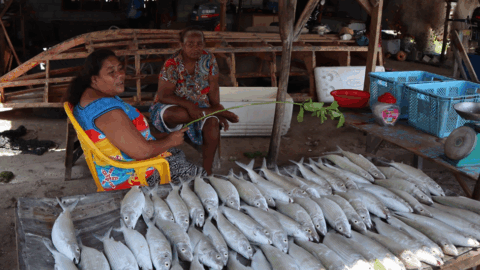What can we learn from around the world to build #BetterBritishFisheries?

[this blog was updated on 12/5/2017]
The UK is at a pivotal moment. With a future as an independent coastal state ahead, now is a time to reflect on aspirations for fishing 5, 10, 20 years down the road. The Secretary of State for Environment, Food and Rural Affairs, Michael Gove, has stated that the UK will be withdrawing from the Common Fisheries Policy of the European Union. So, with the task of defining a new path for UK fisheries a great question to ask is: what can we learn from sustainable, ambitious and world-leading practices elsewhere?
This is precisely the question posed by the #BetterBritishFisheries event I attended recently – hosted by the BLUE Marine Foundation and the Fishmonger’s Company in London. An excellent mix of active industry, fleet representatives, NGOs, politicians and managers came together to hear from a series of international fishery case studies – drawn from the USA, New Zealand, Australia and Norway.
There was a huge amount to cover across these diverse geographies but a number of key themes and takeaways developed:
- Science is the foundation of good fisheries management. Again and again, presenters spoke of how effective systems, delivering on their goals, were rooted in robust science. The UK houses excellent fishery scientists, and will continue to work in collaboration with ICES – so this offers strong hope that we can build exemplary management
- Clear, time-bound goals help make policies effective. Highlighted within the US case study, it was clear that goals set as undefined points in the future allowed for a lack of rigour in delivery on conservation mandates. Time-bound, mutually agreed objectives – with input from science and industry – can underpin dramatic results
- Regional decision-making taken in partnership helps ensure management is robust and set at the right level. Local knowledge should be embraced within the management framework and developed in partnership with scientists, managers and other stakeholders
- Accountability helps deliver strong sustainability and social goals. Being able to fully document catches through a transparent and accountable system is a key feature in robust fisheries management. This means greater public confidence in fishing operations as well as an ability to generate more responsive science to match reality on the water.
- Rights and incentives give fishermen a stake in delivering ambitious conservation objectives. A common theme amongst the case studies shown: the rights of fishermen to a secure stake in their fishery was seen as instrumental in driving sustainable best-practise. All systems featured at the event were underpinned by this feature which was viewed as creating strong stewardship of the resource and driving sustainable fisheries.
Gaps to fill:
- Carefully tailored solutions are required for the inshore sector. Culture, tradition and heritage – and all the social and economic benefits that go alongside – should be at the heart of determining fishing policies for inshore fleets. If public policy is built around strong social objectives in the UK, it will be important to develop systems of quota management that prevent aggregation of fishing rights. This requires insightful planning and design, but is achievable.
- More knowledge and data is needed, worldwide, on the impacts of recreational fishing on commercial stocks. Norway captured it well by noting that “You have nothing to learn from Norway on recreational fisheries data” – why? Because no fishery has yet cracked this particular challenge. This was seen as a significant missing piece in the global fisheries ‘jigsaw’ and a priority challenge for the UK, and other fishing nations, to address. Getting the full picture on extraction of the resource is vital to ensuring management fits the bill.
The lessons learned from this gathering will be important as the UK Government develops its own national Fisheries Bill, and the supporting White Paper. How can we cherry-pick the best ideas, and avoid the failures, of other, international fishery management systems? This is a task not only for our Government but for the individuals, organisations, and businesses that rely on healthy, resilient fisheries. There is a big job ahead but #BetterBritishFisheries has opened a door to give the UK a glimpse of what the future might look like – and it was fantastic to see that, for the featured fisheries, it looks bright indeed.
To view the case study slides from the #BetterBritishFisheries event, click here.













2 Comments
“A common theme amongst the case studies shown: the rights of fishermen to a secure stake in their fishery was seen as instrumental in driving sustainable best-practise. All systems featured at the event were underpinned by this feature which was viewed as creating strong stewardship of the resource and driving sustainable fisheries.”
If indeed this brave new world of privatised fisheries leads to the creation of strong stewardship, best practice, sustainable fisheries. motherhood and apple pie, why is it that these stewards require on board observers, tracking systems etc? Evidence illustrates that “ownership” does not necessarily lead to compliance [Shetland Catch, Codfather etc etc], never mind the ongoing criminal investigations into privatised quota in Denmark.
In a similar vein, it was clear that many of the speakers advocating rights based allocations were happy to consign thousands of smaller fishing communities to history, together with centuries of culture, tradition and heritage as well as skill sets that will be lost forever. And all this for what? So that the administration of the fleet becomes far more convenient and a small number of individuals and organisations are gifted the right to take possession of a public resource at the expense of everyone else. Fishing can either provide a living for thousands or a fortune for a few. It’s really a simple choice and the only reason that the latter is increasingly the case is because those with the resources tend to call the shots. There is a better, fairer and more equitable way of allocation resources so that all concerned, big and small can prosper without any one group being disenfranchised.
Jerry,
It is well documented that having a stake in the fishery can provide strong stewardship over the resource and a willingness to protect it into the future for generations to come. There are many rights-based methods to improve stewardship such as providing time-bounded ‘use-rights’ or spatial access limited to gear types or community, as was done in Lyme Bay and in Belize where a national programme of rights-based management was adopted by small scale fishers. Fishing is a privilege and fish are a public, natural resource. However, the principle of securing a stake in the fishery and therefore creating positive incentives to protect it remain a firm principle of robust and sustainable fisheries management.
There are of course outliers in the system as you point out, however without some form of security of tenure – no matter how large or small the vessel – the ability to plan a business effectively and make decisions to protect and conserve the resource – is removed. As in many businesses, there needs to be accountability within the system and fully documenting fisheries brings public confidence to operations at sea. However, by aligning incentives to fish within TAC it is not necessary to carry out high levels of auditing when fisheries are demonstrated to operate sustainably. In these cases auditing can reduce to about 10%, as seen in the British Columbian halibut fishery.
You are right that the issue of small scale fisheries was not satisfactorily captured during the conference, something this blog should have highlighted and it will be updated to feature this element. It is critical that small scale fisheries are able to effectively ‘nest’ within the wider fisheries governance and management system and there are lessons from the US and Norway that can help the UK develop meaningful options that place fishers at the heart of design using positive incentives to generate more quota within the sector.
Culture, tradition, and heritage crucially need to be captured in the over-arching objectives for future UK fisheries so that socio-economic considerations can rise above purely economic ones. The US system embraces the development of cooperatives, risk pools and buffer quotas to enable more effective management of quota at the community level. Perhaps the UK could examine the application of these tools in a UK context? The ability to foster more peer to peer swaps will also be important if quota is to move more fluidly amongst the small scale sector. Moving away from monthly, even quarterly handouts could help, as well as ring-fencing quota for new entrants and allocating according to social and environmental criteria.
EDF believes in thriving coastal communities and that there are solutions for the small scale sector which must be integrated within the wider fisheries management and governance system. Management options need to be tailored to the needs of the sector and ensure limits are in place to curtail any aggregation of quota as well as ensure more equitable access to quota by the small scale fleet. We believe quota management in the UK can be better and fairer so that big and small can prosper. With smart design and a willingness from both government and fishers to make change, UK small scale fisheries can be vibrant and thrive.